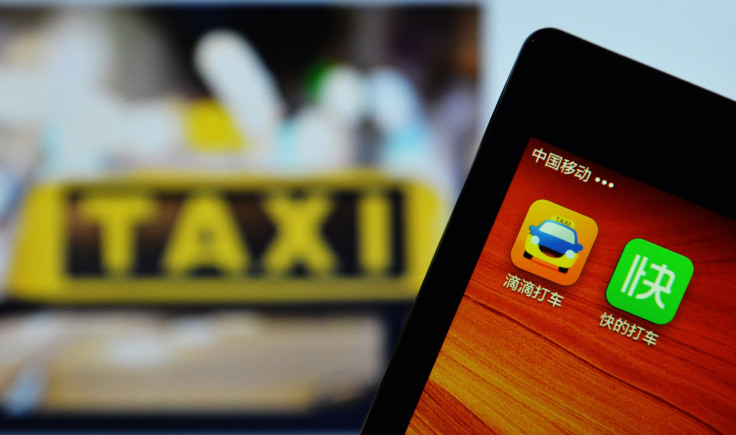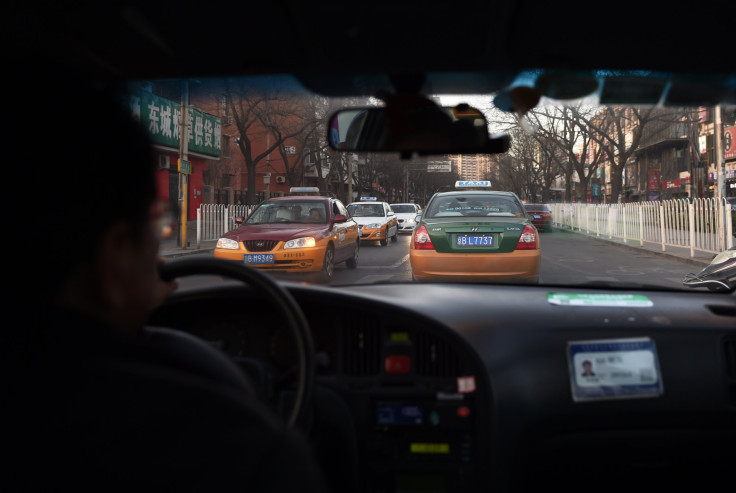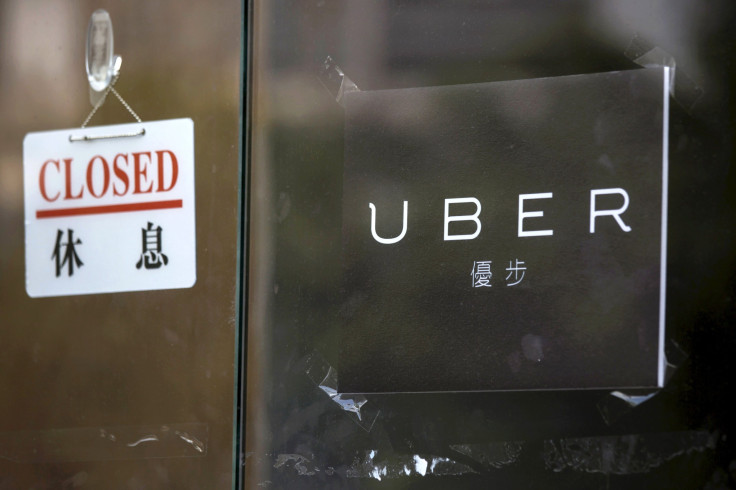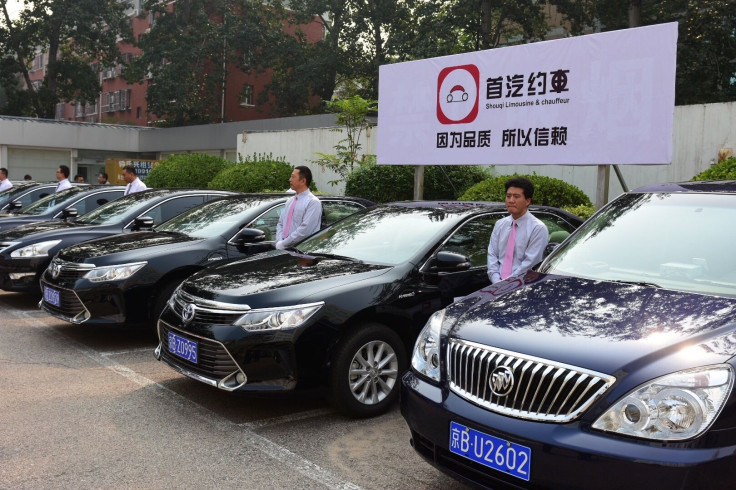China’s First Ride-Hailing App License A 'Milestone' In Market Opening, And A Boost To Uber's Chinese Ambitions

SHANGHAI -- Ride-hailing apps have proved controversial in many countries -- Uber's UberPop service was banned in France this year, for example -- but nowhere more so than in China, where they have provoked public protests by taxi drivers, raids on operators’ offices and arrests of drivers by police. In a heavily controlled market, where all taxi companies have been effectively state run, such apps have been seen as a major challenge to the system.
So the awarding of the country’s first official license for a car-hailing app is being seen as a major breakthrough that could have far-reaching implications -- not just for Didi Kuaidi, which has received a license to operate in Shanghai, but also for Uber, which has invested large sums and risked government crackdowns in its determination to break into the Chinese market. It could also bring significant benefits for Chinese consumers, who have complained of poor service by official taxis.
Didi Kuaidi -- formed of a merger between services started by Chinese Internet giants Tencent and Alibaba -- announced the news at a press conference in Shanghai Thursday. In what the company’s CEO Cheng Wei called a “landmark” decision, the Shanghai government announced that private cars and drivers would be allowed to carry passengers on behalf of the company in the city, provided they met certain standards.

“If you fit the standards you can be a private car in the morning and a licensed service provider by the evening,” said Sun Jianping, head of Shanghai’s Transport Commission, at the news conference, according to Shanghai news website The Paper. On the day that an official Shanghai government survey showed that the quality of service in the city’s traditional taxis had fallen, Sun said the deal showed Shanghai was “committed to meeting its citizens’ transportation needs,” and was being "pragmatic" and "innovative."
He said the arrangement would promote market competition, with the government operating more as a regulator, and was in line with the government’s “Internet Plus" strategy of developing Internet-related business.
Sun said apps should aim to provide better quality vehicles and service than normal taxis, and stressed that worries about safety of private cars operating as minicabs would be addressed, since licensed companies like Didi Kuaidi would screen drivers and vehicles, and require insurance for cars and passengers.
Cheng said Didi Kuaidi was currently negotiating with other cities too -- and the Shanghai approach was likely to become a model for the country. China’s Ministry of Transport is currently drafting national legislation to govern the fledgling industry, and one analyst quoted by the official Global Times said the Shanghai trial should help speed up the process. Experts quoted by the China Daily, meanwhile, said it was likely local governments would be given plenty of freedom to draft their own rules, and it was likely other cities would also begin granting such licenses soon.
While Didi Kuaidi, which currently controls some 80 percent of China’s ride-hailing market, has won the first license, analysts said the deal could also be good news for its competitors, including Yidao Yongche and Uber, the U.S.-based company that has said China is its number one priority for expansion. Uber announced Thursday that it had set up a subsidiary company -- its first outside the U.S. -- in Shanghai’s Free Trade Zone, with a registered capital of some $330 million. Uber’s China strategy head Liu Zhen said the company was “getting prepared for the upcoming regulations,” according to local media, and would apply for a license as soon as they were published.

Uber currently controls about 14 percent of the Chinese ride-hailing market, and operates in 21 cities, but has previously had its offices raided in several locations. However the company has said it aims to set up operations in 100 Chinese cities, and plans to invest almost $1 billion in expanding in China.
Analysts say Uber may still face challenges in obtaining a formal license in China: Shanghai officials stressed this week that licensed companies must have servers and databases that are located inside China, and subject to official scrutiny. However the company’s cooperation with Chinese Internet giant Baidu, which is reported to have invested $1.2 billion in Uber China, may help in this respect.
And Shanghai’s move is a sign that the ride-hailing app operators, which have taken some risks to operate in a gray area in China until now -- their drivers have faced fines of several thousand dollars and have had their cars confiscated for several months in some Chinese cities -- may be succeeding in their desire to shake up the nation's taxi market. It also suggests that, after more than a year of indecision and mixed signals about their attitudes to such companies, Chinese authorities are now mapping out a direction for the future.
Some urban Chinese residents welcomed the move.
“Private cars are so much better than traditional taxis. The cars are usually very clean, the drivers are polite -- sometimes they open the door for you or give you a bottle of water -- and you can use the seatbelt in the back of the car too, which is often buried under the seat in conventional taxis,” Vivi Wang, an advertising executive from Shanghai in her 30s, told International Business Times.

But traditional taxi companies are less certain about the benefits of the move: “How will they fix the price, how will they ensure the cars are safe? - That’s what I want to know,” a Shanghai taxi company executive told The Paper.
And Sun Xiaofeng, a Shanghai taxi driver with 20 years’ experience, was unimpressed: “These apps are stealing our business -- they’re having such a big impact on us,” he complained to IBT. “It’s getting harder for us to earn money -- people don’t want to drive taxis any more, there are lots of cars just standing idle in our company’s parking lot. But you can't trust those apps -- if there's an accident, the drivers could just disappear.”
However some Chinese taxi drivers have said they are ready to change sides and join the ride-hailing apps, out of frustration with the nation's mainstream companies, to which drivers have to pay relatively large management fees. Shanghai drivers for example have to pay up to $50 a day to their companies, several of which are listed on the city's stock exchange.
And in a sign that the shake-up of the industry may bring benefits for China's traditional taxi drivers too, Shanghai this week also announced a pilot plan whereby taxi drivers would be able to work as individuals via online platforms, with similar changes planned in a number of other cities.
© Copyright IBTimes 2024. All rights reserved.






















